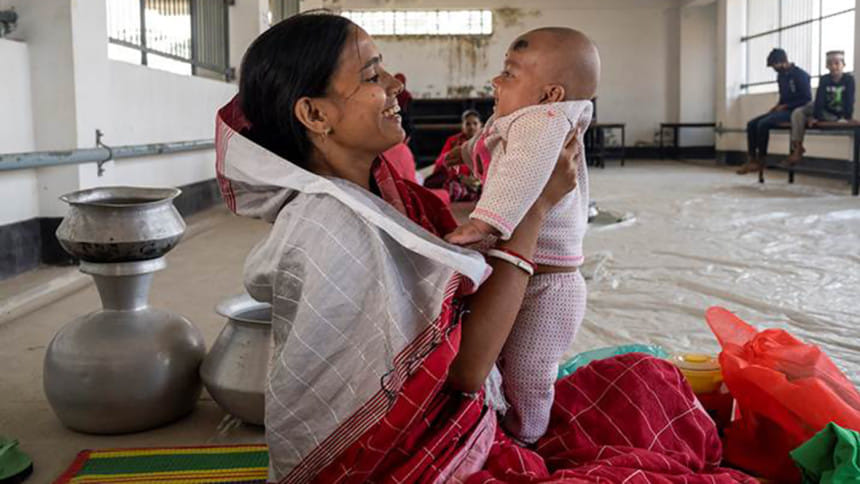Not a child-friendly ‘formula’


Last month, when 22-year-old Mitu Dhar was struggling to make her newborn stop crying at a private hospital in Dhaka, as she couldn't produce enough milk for him, her family members got desperate to get some artificial milk for the baby.
Soon after, they took a suggestion from a nurse at the hospital, who recommended her a specific formula brand, which eventually helped them to pacify the baby.
That was how Mitu and her family got depended on formula milk for the baby and took it as a prescription item. Mitu, during her entire pregnancy, yearned to breastfeed her child.
A new report titled, "How marketing of formula milk influences our decisions on infant feeding", jointly prepared by the World Health Organization (WHO) and Unicef, shows that progress on breastfeeding in Bangladesh was undermined by aggressive formula milk marketing.
Interviews were conducted with parents, pregnant women and health workers in eight countries, including Bangladesh, to prepare the report. It also shows that despite 98 percent of pregnant women expressing a strong desire to breastfeed, only 65 percent go on to do so exclusively after giving birth.
It also mentioned that many health professionals -- including paediatricians, nurses, dieticians and hospital administrators -- are targeted by formula milk brand representatives -- with a range of incentives, including, funding for research, commissions from sales, ambassadorial roles, merchandise, gifts and all-expenses-paid promotional trips. Nearly 60 percent of mothers in Bangladesh have been recommended a formula milk product by a health professional.
"The overwhelming majority of women in Bangladesh want to breastfeed, yet they often do not receive the support they need. This can only be overcome when mothers are given information based on science, not profits," said Veera Mendonca, deputy representative of Unicef Bangladesh.
The report also mentioned that breastfeeding within the first hour of birth, followed by exclusive breastfeeding for six months and continued breastfeeding for up to two years or beyond, offers a powerful line of defence against all forms of child malnutrition, including wasting and obesity.
"Yet globally, only 44 percent of babies aged less than 6 months are exclusively breastfed. Global breastfeeding rates have increased very little in the past two decades, while sales of formula milk have more than doubled in roughly the same time," the study highlighted.
The report recommended banning health workers from accepting sponsorship from companies that market foods for infants and young children for scholarships, awards, grants, meetings, or events.
"There must be everyday breastfeeding sessions in health education programme in all facilities and breastfeeding training to all health care providers and refresher training to tackle this crisis," said Dr Md Muniruzzaman Siddiqui, director of Mohammadpur Fertility Services and Training Centre.

 For all latest news, follow The Daily Star's Google News channel.
For all latest news, follow The Daily Star's Google News channel. 



Comments